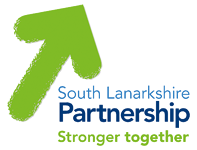
The South Lanarkshire Partnership Board (Board) is the Community Planning Partnership for South Lanarkshire. The Board provides strategic leadership and oversees partnership activity to support the delivery of its agreed vision and outcomes, as set out in the Community Plan 2017-2027.
As of October 2017, Partnership Board papers are available for viewing.
The remit of the Board is to:
- identify and address key economic, social, physical and environmental issues facing South Lanarkshire
- develop and set out a joint vision for the area
- set challenging outcomes for performance through the Community Plan along with identifying the contribution expected from individual partners
- ensure programmes and projects highlighted in strategies and action plans are addressed and progressed by partners
- monitor and evaluate progress with regard to the agreed outcomes
- provide forums through which organisations can meet and work together to address service needs and priorities
- engage with the community
- oversee the work of the theme partnerships
The Board meets six times a year and membership includes:-
- NHS Lanarkshire
- Police Scotland
- Scottish Enterprise
- Scottish Fire and Rescue Service
- Scottish Government
- Skills Development Scotland
- South Lanarkshire Council
- South Lanarkshire Leisure and Culture
- Strathclyde Partnership for Transport
- University of the West of Scotland
- VASLan (Community and Voluntary Sectors)
The Board has set up four thematic partnerships and three sub-partnerships to improve the quality of life of South Lanarkshire residents.
The thematic partnerships are:
- Community Safety Partnership
- Economic Growth Partnership
- Getting it Right for South Lanarkshire's Children Partnership
- Health and Care Partnership
The thematic sub-partnerships are:
Overarching Objective – Tackling Deprivation, Poverty and Inequality
The Community Planning Partnership has agreed a single, overarching objective to tackle poverty, deprivation and inequalities and sees sustainable inclusive economic growth as being the key to helping reduce this.
It is recognised that the efforts to deliver sustainable inclusive economic growth will only begin to deliver real benefits in the medium to longer term and that there is a need to mitigate the current impact of poverty, deprivation and inequality on residents and communities and to support their efforts to change their situation and prospects.
In particular, plans have been drawn up to improve the prospects and outcomes in relation to children and young people, health and social care, community safety and economic growth over the short, medium and long term.
Concerted action by the partners and communities will be required across a range of areas to both improve the current situation and to provide a platform to enable them to reduce their risk of experiencing poverty and deprivation and build their resilience.
Research has been undertaken looking at existing Scottish and UK Government approaches to tackling poverty and deprivation as well as relevant reports from campaigning groups, research institutes and other Scottish councils and available statistics on social and economic circumstances in South Lanarkshire.
From this exercise a general agreement was reached that the approaches to reducing poverty and deprivation identified by the Joseph Rowntree Foundation - outlined below - provided a framework around which work could be progressed in South Lanarkshire.
The partnership intends to develop a programme of work around these approaches to review current activities, how effective they are at meeting the needs of those at risk or experiencing the effects of poverty and deprivation and what may need to change to enhance current activities.
The approaches are:-
- Inclusive Growth;
- Financial Inclusion;
- Supporting Parental Employment and Childcare;
- Improving Housing;
- Education, Skills and Development;
- Health Inequalities;
- Safeguarding from Risk or Harm; and
- Improving the local environment and communities.
The latest official figures show 41,670 people were identified as income deprived (13.2%) and 23,925 were identified as employment deprived (11.9%). Since 2009 the proportions of income and employment deprived in South Lanarkshire have always been above the Scottish averages and the gaps are widening. A total of 50 areas within South Lanarkshire had over a quarter of their population being income deprived and 31 had over a quarter being employment deprived.
More information about the actions that the Partnership will take to mitigate the current impact of poverty, deprivation and inequality can be found within the Community Plan 2017-2027.



